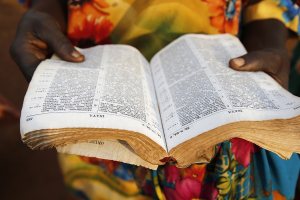'Massive generational' shift changing evangelical institutions on justice issues, Gary Haugen says

MIAMI BEACH — A "massive generational" shift is changing how evangelical institutions address justice issues, according to International Justice Mission CEO Gary Haugen.
"I do believe there is a massive generational thing that is taking place here," Haugen said during his April 1 talk at Faith Angle Forum.
His presentation was on global poverty and called "Global Poverty and Injustice: Taking the Long View." But during the Q&A session, Haugen was asked some questions about the current state of evangelicalism in the U.S.
When he first helped found IJM in the 1990s, Haugen said, most evangelicals looked with suspicion upon concerns about justice for the poor.
"Traditional evangelicals viewed any presentation ... [that suggested] we want justice, care about struggles for the poor, fighting abuse and oppression, that would have been viewed, when I started 25 years ago, as a distraction for the 'real Gospel,'" he said. "It would have been viewed as lefty political agenda ... liberation theology."
But that is no longer the case, Haugen believes.
"There were important theological objections to even to the calling of Christians to engage the struggle for justice in the world. In mainstream evangelicalism, I believe those theological objections have gone away. And especially for a younger generation, 40 and younger, they don't even remember those old days, and if you aren't actually talking about justice, you're probably not credible."
And while those younger evangelicals who are more concerned about justice for the poor don't currently hold leadership positions in evangelical institutions, soon they will.
"Those folks don't have the money and the power in the church community right now, but in 15 years, they will. I think you will see a different phenomenon," he said.
IJM was founded in 1997 and works to protect the poor from violence in the developing world.
Haugen was introduced by Washington Post conservative columnist Michael Gerson, who said that Haugen is the type of evangelical that makes the word "evangelical" worth fighting for.
When asked about that during the Q&A, Haugen responded, "I don't want to argue with my dear friend Michael, but I may not be willing to fight for the word 'evangelical.'"
He explained that while evangelical churches were formative growing up, he didn't hear much preaching about justice, even though he found the topic throughout the Bible.
Quoting from memory, Haugen mentioned the examples of Micah 6:8, "He has shown you, O mortal, what is good. And what does the Lord require of you? To act justly and to love mercy and to walk humbly with your God," and Jesus' words to religious leaders in Matthew 23:23, "But you have neglected the more important matters of the law — justice, mercy and faithfulness."
"But I grew up in a church that managed to weave its way through the text without ever encountering those scriptures," he said. "I heard a thousand sermons by the time I left for college and never heard a sermon address those, primarily because the people in my church were not suffering injustice. I think that's one reason."
Working with Bishop Desmond Tutu in South Africa in the 1980s, however, helped Haugen think about scriptural applications to the injustice problems.
"I was re-acquainted with my own faith tradition of commitment to the struggle of justice. The biblical text which I have been raised in is chock full of this priority," he said.
And when he helped found IJM, Haugen said, he had two goals: 1) "to move my faith tradition from almost complete disengagement in the struggle for human rights and justice ... into engagement, and on the strength of biblical tradition;" 2) And to do that "as a community of intentional spiritual formation" as he found in South Africa.
Faith Angle Forum brings journalists to Miami Beach twice a year to help them better understand the interaction between religious faith and public life. You can watch Haugen's full presentation here.





























